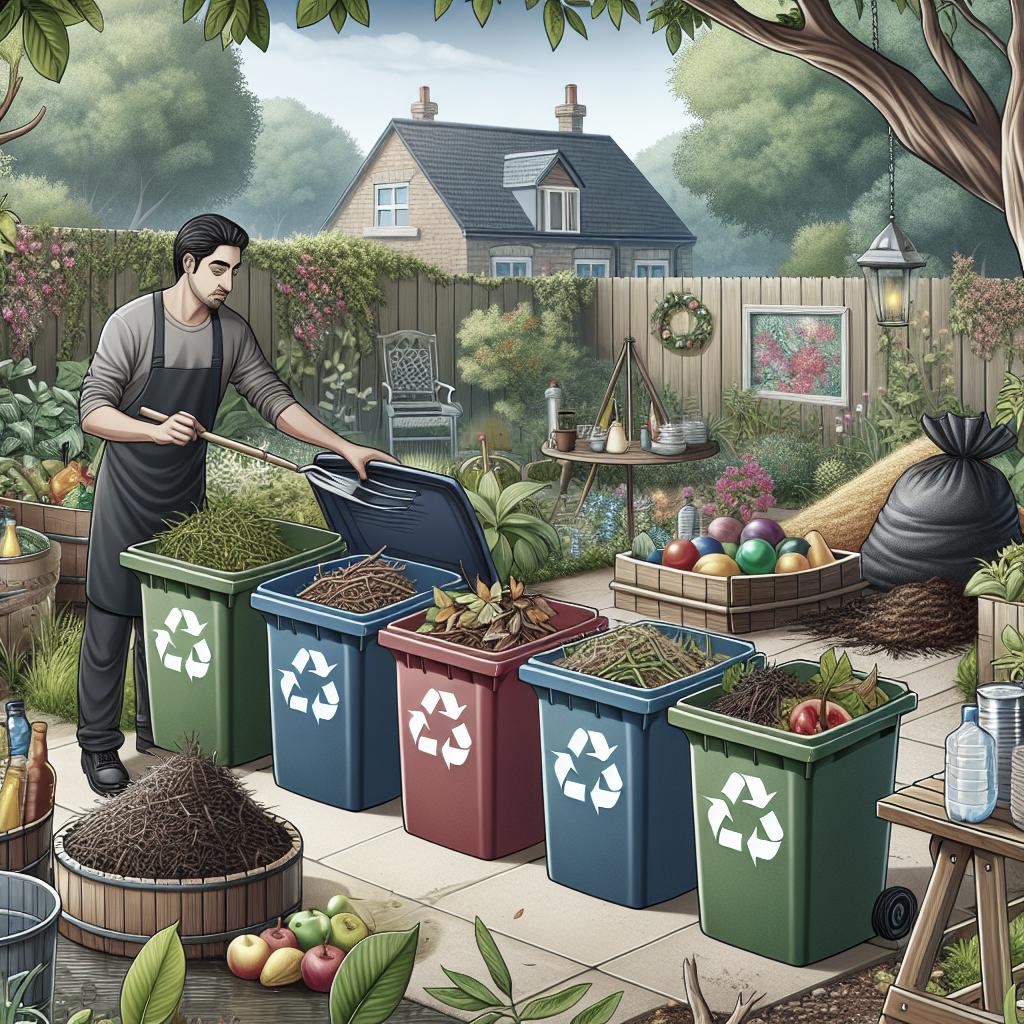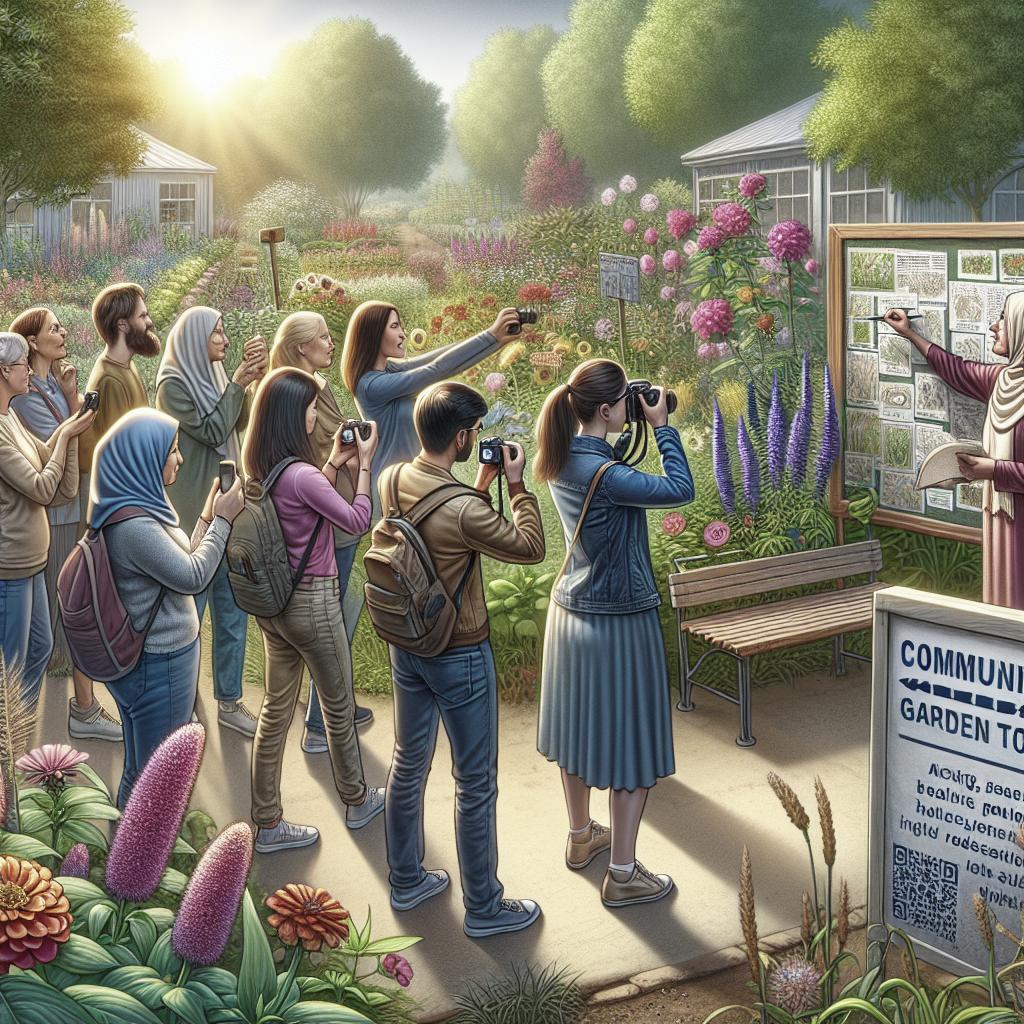Managing garden waste effectively not only maintains a cleaner, more organized garden, but also promotes environmental responsibility and sustainability. In this guide, we’ll explore various methods to handle and recycle garden waste, beginning with making leaf mold and utilizing wood chipping. We’ll then delve into creating a compost pile, establishing wildlife habitats, and constructing hugelkultur beds. We also look at vermiculture and green cone digesters, and finally, ways to reduce garden waste production. These techniques can transform your garden into a thriving ecosystem while minimizing environmental impact. Let’s dig into each method and discover the best practices for your garden.
Make Leaf Mold
Leaf mold is an excellent way to recycle the abundant leaves that fall each year. Unlike compost, which breaks down through the bacterial process, leaf mold breaks down via fungi. This makes it an ideal mulch and soil conditioner with superior water retention capabilities. To make leaf mold, start by collecting fallen leaves in a dedicated bin or a designated corner of your garden. Ensure the leaves stay moist, which accelerates the decomposition process. It’s generally best to periodically turn the pile to aerate it, speeding up the breakdown. Over time, which can range from a few months to a couple of years, the leaves will decompose into a dark, crumbly material ready for your garden. Utilizing leaf mold benefits soil structure and fertility, particularly in clay soils. It enhances aeration and drainage while providing a habitat for beneficial microorganisms. So, next time autumn leaves pile up, resist the urge to dispose of them. Instead, convert them into this precious resource.
Utilize Wood Chipping
Wood chipping transforms tree branches, twigs, and other larger plant debris into useful mulch or compost material. Investing in a wood chipper or hiring a tree service can provide you with ample chippings. When used as mulch, wood chips suppress weed growth, retain soil moisture, and gradually add organic matter to the soil as they decompose. Spread a layer of wood chips around trees, shrubs, and garden beds, ensuring they don’t touch the plant stems to prevent rot issues. The mulch should be several inches thick to be effective. Alternatively, wood chips can be added to your compost pile. Shredded material breaks down faster and adds structure to the heap, promoting aeration. Be cautious; wood chips are high in carbon, so balance them with nitrogen-rich materials like kitchen waste or green garden waste to avoid creating a less nitrogen-dense compost.
Start A Compost Pile
Composting is a classic and highly effective way to manage garden waste. By converting organic matter like leaves, grass clippings, and plant scraps into nutrient-rich compost, you create a cycle that enriches your garden soil year after year. To start, choose a location for your compost pile or bin. Ideal spots are level, well-drained, and easily accessible. Layer green waste (nitrogen-rich materials such as grass clippings and vegetable scraps) with brown waste (carbon-rich materials like dried leaves, twigs, and cardboard). Maintain a balance between green and brown materials to ensure optimum decomposition. Turn the compost regularly to aerate it, which increases microbial activity and speeds up decomposition. Keep the pile moist but not waterlogged. After a few months, you’ll have dark, crumbly compost ready to nourish your plants. This nutrient-rich addition enhances soil structure, fertility, and moisture retention.
Create A Wildlife Habitat
Using garden waste to create a wildlife habitat can turn refuse into resources, benefiting local biodiversity. Piles of twigs, leaves, and other organic matter provide shelter and nesting sites for various creatures such as birds, insects, and small mammals. Start by identifying an undisturbed area of your garden to dedicate to wildlife. Pile up branches, sticks, and logs to form natural shelters. Add leaves and other plant material to create layers. Over time, these piles will attract insects and fungi, creating a micro-ecosystem that supports higher biodiversity. Such habitats can improve pest control by attracting predators like birds and beneficial insects. They also create educational opportunities, allowing you and your family to observe and learn about local wildlife. Rather than viewing garden waste as a problem, see it as a way to contribute to the local ecosystem.
Construct A Hugelkultur Bed
Hugelkultur, a traditional German agricultural technique, involves constructing raised beds filled with decaying wood and other organic materials. This method not only recycles waste but also creates fertile, moisture-retentive garden beds. To build a hugelkultur bed, dig a trench and fill it with logs, branches, and other woody debris. Cover this base layer with grass clippings, leaves, straw, and finally, a layer of topsoil. The decomposition process generates heat, extending the growing season by warming the soil. This process also retains moisture, reducing the need for frequent watering. Over time, the organic materials break down, enriching the soil and providing a long-lasting source of nutrients. Hugelkultur beds are particularly beneficial in areas prone to drought, as they maintain moisture more effectively than standard beds.
Try Vermiculture
Vermiculture, or worm composting, involves using worms to convert organic waste into nutrient-dense compost. This method is particularly suited for small gardens or even indoor composting in urban settings. Begin by procuring a worm bin and filling it with a bedding material like shredded newspaper or coconut coir. Add kitchen scraps and garden waste (ensure it’s free of chemicals) and introduce red worms, which are best for composting. Avoid placing meat, dairy, or oily foods in the bin as they can attract pests and cause odors. Keep the bin in a cool, shaded area and monitor moisture levels—too wet and the worms can drown; too dry and they might perish. As worms consume the organic matter, they produce vermicast, a rich, dark compost ideal for garden beds and potting soils. Vermiculture is a compact, efficient way to recycle waste and invigorate your plants.
Install A Green Cone Digester
A green cone digester offers an efficient way to dispose of both garden and household organic waste. This system accelerates decomposition through a combination of solar heating and microbial action. To install a green cone, dig a hole in a sunny spot of your garden and place the cone inside, ensuring the lower basket is below ground level. Add kitchen scraps and garden waste directly into the cone. The design allows for aeration and drainage, promoting rapid decomposition without the need for turning or mixing. This method is low maintenance and can handle a variety of waste, including meat and dairy, unlike traditional composters. The digested material enriches the surrounding soil, supporting plant growth indirectly.
Reduce The Waste You Create
The most effective way to manage garden waste is to minimize its production. Thoughtful garden planning and maintenance can significantly reduce the amount of waste generated. Practice selective pruning, only trimming plants when necessary, and let leaves decompose naturally on garden beds as mulch. Choose perennials and native plants that require less maintenance compared to annuals. Reusing materials within the garden, like shredded paper for compost bedding or old pots for new plants, can also cut down on waste. Responsible purchasing, such as opting for plants with minimal packaging and using fewer disposable gardening products, further aids in waste reduction. ## Summary of Main Points
| Method | Description | Primary Benefits |
|---|---|---|
| Make Leaf Mold | Collect and decompose leaves | Improves soil structure and water retention |
| Utilize Wood Chipping | Shred branches and twigs into mulch | Suppresses weeds, retains moisture |
| Start A Compost Pile | Layer organic materials to create compost | Enriches soil, reduces waste |
| Create A Wildlife Habitat | Use waste to build habitats for animals | Supports local biodiversity, natural pest control |
| Construct A Hugelkultur Bed | Create raised beds filled with wood and organic matter | Improves soil fertility, retains moisture |
| Try Vermiculture | Use worms to compost kitchen and garden waste | Produces nutrient-rich compost, suitable for small spaces |
| Install A Green Cone Digester | Utilize a green cone for waste disposal and decomposition | Low maintenance, handles diverse waste |
| Reduce The Waste You Create | Implement strategies to minimize waste production | Less waste to manage, resource efficiency |
By adopting these innovative garden waste management techniques, you can create a more sustainable and productive garden. Whether you choose to compost, create habitats, or minimize waste, each strategy contributes to a healthier environment.


